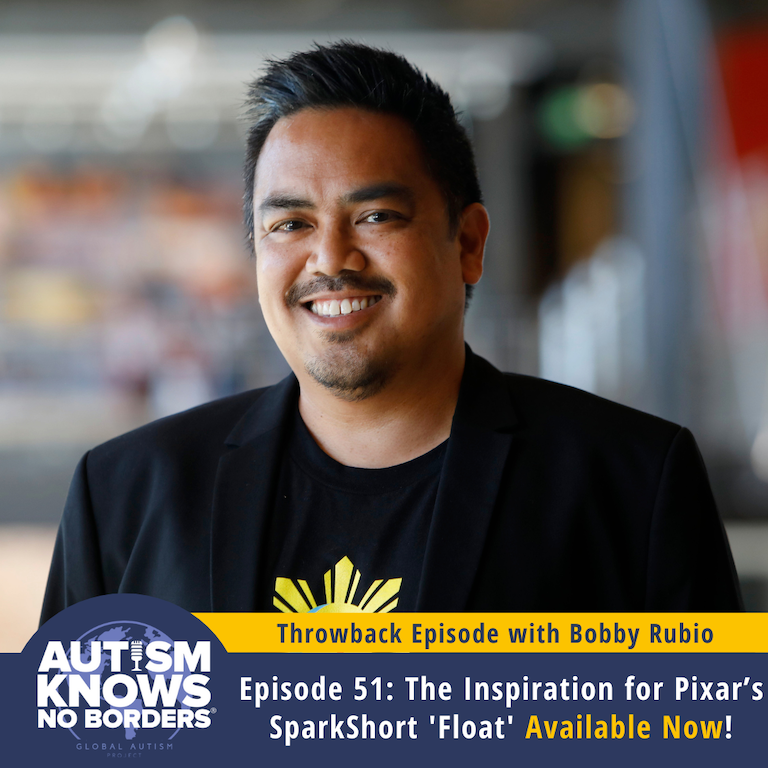Show Notes
Discover what’s possible when a child can fly free.
Bobby Rubio is the writer and director of the Pixar SparkShort Float, which is a short animated film inspired by his relationship with his autistic son, Alex. Float is available for streaming on Disney+.
Bobby is known for his work on Hercules, Atlantis: The Lost Empire, and Incredibles 2, which earned him an Annie Awards nomination for Outstanding Achievement for Storyboarding in an Animated Feature Production. Bobby is also the creator and owner of his independent comics and intellectual properties: Alcatraz High, 4 Gun Conclusion, and Neighborhood Legend.
In today’s conversation, we discuss:
- Bobby’s journey of accepting his son’s autism
- The creative process of producing Float
- The stigma of mental health within the Filipino community
- Tips for parents whose children have received an autism diagnosis
To learn more about Bobby Rubio, you can check out his Instagram: @bobbyrubio.
This conversation with Bobby Rubio was originally released on March 11, 2021.
----more----We appreciate your time. If you enjoy this podcast and you’d like to support our mission, please take just a few seconds to share it with one person who you think will find value in it too.
Follow us on Instagram: @autismpodcast
Join our Facebook group: Autism Knows No Borders
Subscribe to our YouTube channel: Global Autism Project
We would love to hear your feedback about the show. Please fill out this short survey to let us know your thoughts: Listener Survey.
Listen On
Recent Episodes
-

Driving with Autism, with Andrew Arboe | Autism Tips & Tools
How can autistic people limit sensory overload and manage fatigue while driving? -

Visual Thinking and Problem Solving, Part 2 with Dr. Temple Grandin | TBT
Discover what’s possible when all minds are put to use. This episode is part -

Eating Disorders and Autism, with Livia Sara | Autism Tips & Tools
How can autism affect eating disorders? Livia Sara, Autistic Self-Advocate and e -

Visual Thinking and Problem Solving, Part 1 with Dr. Temple Grandin | TBT
Discover what’s possible when all minds are put to use. What’s the difference b

